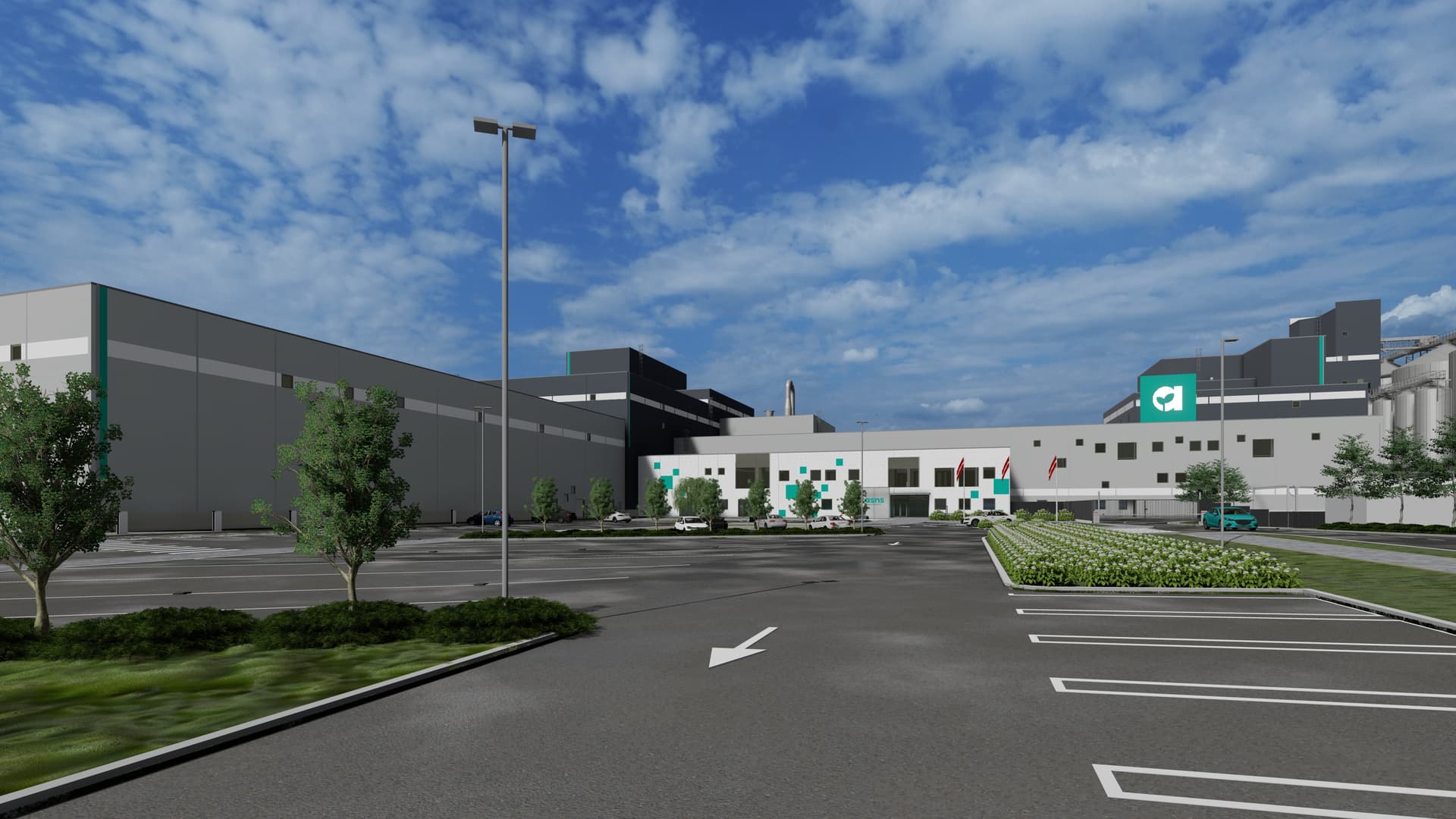Pfeifer & Langen supports alternative protein production plant in Latvia

“Considering the rapid development of AI and IoT, we'll be a major step ahead of our competitors that have already built their production plants. We'll be an important global player,” says Edgars Ruža, former CEO of Latraps, one of the people behind the alternative protein project and current board member of ASNS Ingredient, the company founded to put it into action. The production facility in Jelgava will be made possible through an investment agreement between Latraps and Pfeifer & Langen, the Germany-based sugar and agricultural products manufacturer. The planned investment amount (CapEx) is 114 million euros.
In an interview, Ruža shares insights from ASNS Ingredient's experience from idea to investment and action. By the way, in Latvian, the word “asns” means sprout!
Why alternative protein and how did you land the investment?
Considering that Latvia grows much more food and agricultural produce than it can consume, we export a lot. However, we export mostly raw material that someone else then processes. So, from its inception, Latraps has researched and analyzed ways of adding value to the produce to get more out of it.
Through many ideas and projects, we arrived at alternative protein, which is environmentally friendly – it introduces a new crop into the rotation that draws nitrogen from the atmosphere and lessens the need for synthetic fertilizer. This means we need less fertilizer, so we purchase and import less, previously from the aggressor state and now from other countries, which is significantly more expensive.
We found that plant-based protein as an alternative to animal protein is growing in significance due to climate issues, overpopulation and changes in how people are thinking. Putting all that together, since 2019, we've been working intensively on developing a pea protein production plant, which has since evolved into a protein isolate production facility. Once the project was properly off the ground, we started seeking potential partners-investors and found Pfeifer & Langen.
Pfeifer & Langen are newcomers to the Baltics. Was it easy to get them on board?
The process took approximately two years. Of course, they had some concerns about the local conditions, a new mentality and market, but Pfeifer & Langen have quite a lot of experience outside Germany, including factories in Poland and Ukraine in partnership with local businesses. They're no beginners in the sector and in terms of operating close to the frontline. They were least afraid of that – as a business, they've developed a feel for places where others might be afraid to invest but which therefore have greater potential.
ASNS Ingredient chose to establish the plant in Jelgava. Why there? What are the city's advantages?
Jelgava is linked to agriculture and the food industry. It is the center of Latvia and Zemgale where most agricultural production takes place. Jelgava is also the home of the Latvia University of Life Sciences and Technologies (LBTU) with programs in agronomy and food technology – a possible source of employees and managers.
Looking into the future, we see our project as the beginning of a whole new industry, again connected to the LBTU. It would lead to the development of new companies, research and opportunities for products made from local materials.
Additionally, logistics were a major reason. Jelgava isn't far from the ports, which are important since most of our produce will be exported. However, it's also important to be close to our suppliers, most of whom are in Zemgale, the breadbasket of Latvia.
The local council has been supportive.
What's the status of the production plant?
Construction work on the production plant is starting in November 2024. For us to be competitive, we have a very busy schedule. These days, everything is changing so quickly that even brief delays can push you out of the market.
We'll be creating more than 100 jobs. Although we're currently investing in automation and AI, these processes will still require people to oversee them. We'll need more people working on the programs and managing the automation than originally planned.
You are one of 22 signatories of the recent Memorandum of Understanding on developing a biorefinery ecosystem in Latvia. What can you say about the role of collaboration in this sector and in general?
While the knowledge exchange and collaboration are valuable to us, continuity is also important so that those who come after us carry on contributing to Latvia and bringing in resources instead of giving them away. But the memorandum needs to start being put into practice. Once it starts bringing in results, then we can talk about genuine collaboration.
Latraps is proof that we’ve successfully united agricultural players, showing that we can achieve far better results by working together than individually.
We've worked with the state and local governments and achieved a lot but, as a country, we still have a long way to go. Bureaucracy and focusing on the small stuff are still very characteristic of Latvia but some organizations have risen to see the global scale. For example, the Rural Support Service.
ABOUT ASNS INGREDIENT
ASNS Ingredient will produce yellow pea protein isolate and its by-products: starch, as well as soluble and extruded hulls fibers and feed protein. The technology was developed in partnership with the Swiss plant equipment manufacturer Bühler, having invested over a year in research. As a result, 82% of the raw material will be made into a product. Production at the new plant is due to start at the end of 2026.